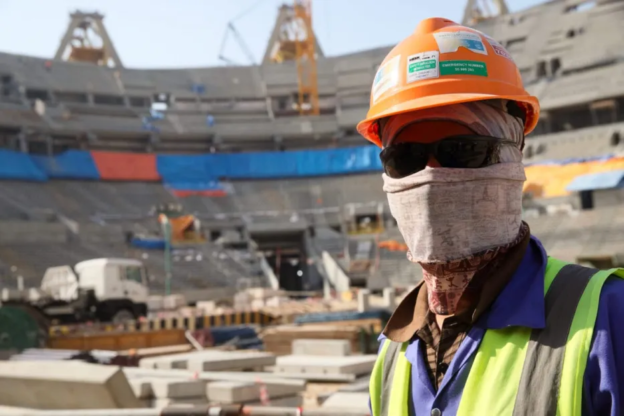The 2022 World Cup is set to kick off. Thirty-two teams (including Wales and England) will play in Qatar in eight stadiums, seven of which were built from scratch for the tournament alongside transport and tourist infrastructure. As the build-up intensifies, voices calling for fans to simply “focus on the football” or to “keep politics out of football” have grown louder. But Amnesty International, the Guardian newspaper and the BBC, among others, have reported on poor working conditions, exploitation, bullying, poor pay and even deaths among the migrant workers recruited to build the facilities for the tournament. The Guardian, in a 2021 article, put the number of deaths since Qatar was awarded the right to host the competition by FIFA in 2010 as high as 6,500 (source: The Guardian). So, should we focus on the football and keep politics out of the beautiful game?
I think the question has two dimensions – one ethical, the other conceptual. I’ll take the conceptual dimension first. This boils down to the demand that we focus exclusively on the football and ignore the treatment of migrant labour. It also means, however, that we ignore a range of other things like social media, racism, fashion, money, fandom that are also implicated in football. We hear similar demands from some quarters in religious studies that we need to focus squarely on the religion. But the late Bruno Latour insisted on this point; things don’t exist in a pure state or as discrete objects; rather, they are always hybrids, combining with other things. So, you should reject the call to focus solely on the football because, at a conceptual level football, very much like religion, doesn’t make much sense on its own, demarcated from everything else.
Now for the ethical dimension. The demand to keep politics out of the beautiful game and simply focus on the football feels like a tacit admission that the ethical dimension really does matter. Events like these – events that are mired in controversy – might best be understood as “open cultural objects that provoke moral discussions” which can have a “fundamental role in the creation of specific moral publics” (2018: 237). Could a moral public, indignant at the treatment of migrant labour, produce social change in Qatar and beyond that improves their pay and conditions? That’s up to you.
References
Jedlowski, A. (2018) ‘Moral Publics: Human Trafficking, Video Films and the Responsibility of the Postcolonial Subject’, Visual Anthropology, 31 (3): 236-252.

